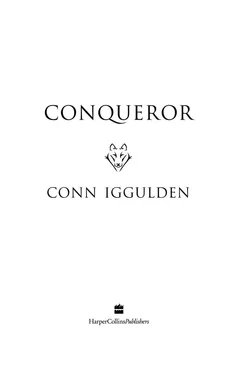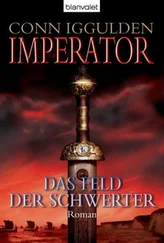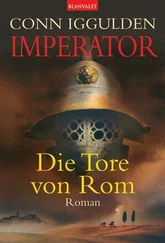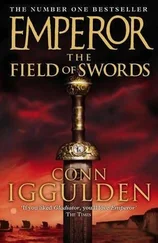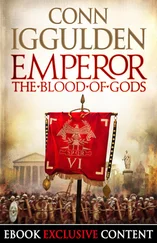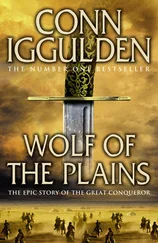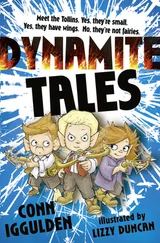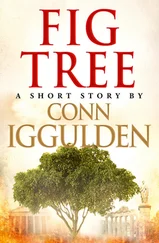CHAPTER THIRTY-NINE

High in the grey-green hills, Kublai could not rest. He stood and looked out over a wide plains valley, deceptively still and peaceful from such a height. Water trickled from a stream close by his right hand, so that he could reach out and cup freezing water to drink when he felt the urge. The day was hot and the sky was baked blue and empty of clouds. It was land he knew, and after so long in the Sung territories, it still touched some deep part of him to be home.
He could hear one of his men cursing behind him as the warrior clambered over slippery rocks. Kublai didn’t turn, content to stare out into the warm vastness, soaking in the sense of space and silence. He was weary after days and nights of hard riding, but feverish anticipation had him in its grip and his hands trembled. Arik-Boke was somewhere out there, beyond his sight. Kublai had made his plans and prepared his men, but it came down to waiting. If Arik-Boke rode out of Karakorum, they would be ready. If he stayed in the city, they would crush him like a flea trapped in a seam of cloth.
After so long together, it was odd not to have his most senior men around him. Bayar was still in the Russian north, Uriang-Khadai was out in the far hills, having returned from his mission to Hulegu. He missed them both, but neither more than Yao Shu. The old monk had grown too frail to ride with the tumans. Yao Shu had set off for his monastery at last. Time and age stole away even the greatest of flames, Kublai thought. He sent a silent prayer that he might see his friend again.
For the first time in years, Kublai was alone with his warriors. Against him, Arik-Boke would have Mongke’s tumans, sworn to his service. Kublai grimaced at the thought. Strength would not bring his brother to heel, not on its own.
It had been a risk to contact Hulegu. His older brother might have heard what Uriang-Khadai had to say and set out immediately to defend Arik-Boke’s khanate. Uriang-Khadai had relayed Hulegu’s words to him, but Kublai knew better than to trust them. If Hulegu moved to support Arik-Boke, it would add another year and another dead brother to the cost of the war. Kublai had no illusions left. In the silence, as his tumans stretched and rested and ate around him, he prayed his older brother would continue to show a little sense and stay well clear.
Kublai raised his head when he heard the jingling sound of bells, carrying far in the mountain stillness. No yam rider this time, but the small herd he had sent out with a couple of his scouts. On foot, he hoped they would have been able to get close to Karakorum unchallenged. He had not expected them back for another month and had made his camp in the hills, far from his brother’s city. He tried to guess what their early return could mean and then gave up. He looked down the steep slope of grassy rocks below his position and saw the small figures of men driving goats and sheep before them. It would be a while yet before he heard whatever they had to say.
Kublai turned to see his son leaning precariously over the rocks to take a mouthful of water.
‘Careful,’ he said. ‘It’s slippery there.’
Zhenjin looked scornful at the idea of falling. He sucked at the stream of water, getting far more down his tunic than in his throat. Kublai smiled at him, but when he resumed his sentinel’s stare, Zhenjin stayed where he was, easing back until he could lean against the rocks in something like comfort.
‘I heard the men talking about what you’re going to do,’ Zhenjin said.
Kublai didn’t look at him. ‘I’m sure you know not to carry tales to me,’ he replied.
The young man shifted his seat, pulling one leg up under him so that he could rest his elbows on the raised knee.
‘They’re not complaining,’ he said. ‘They were just talking, that’s all.’
Kublai summoned patience. It was not as if he had anything to do until his spies reported.
‘What did they say, then?’ he asked.
Zhenjin grinned at him. ‘They said you will be an emperor when this is done.’
‘If I live, that is … true,’ Kublai replied. ‘I will be khan of the nation, but emperor of China.’
‘Does that mean I will be an emperor after you?’ the young man asked.
Kublai looked at him then, his mouth twitching to laugh.
‘Is that what you want? To rule the world?’
‘I think … I think I would like that, yes,’ Zhenjin said, with a thoughtful expression.
‘Then I will do my best to make it happen, my son. You are blood of my blood, bone of my bone. I will name a dynasty and you will carry the name.’
‘Is that why we are going to fight, then? To be emperors?’
Kublai chuckled. ‘There are worse things to fight for.’ He looked over his shoulder at the bondsmen who rested in the mountain crags, the vast majority of his men invisible in the valleys and rifts behind.
‘I think I would be a better khan than Arik-Boke, Zhenjin. That is a reason as well. But a father works for his sons and daughters. He spends his strength and his youth to raise them up, to give them everything he can. When you have children of your own, you will understand.’
Zhenjin considered the idea with great seriousness.
‘I will spare cities when I am emperor. I will be loved and not feared.’
Kublai nodded.
‘Or both, my son, if you are lucky.’
‘I would like to change the world, as you have done,’ Zhenjin said.
Kublai smiled, but there was an edge of sadness to it.
‘I used to discuss such things with my mother, Zhenjin. She was a woman of rare ability.’ His eyes became distant with memory for a moment. ‘You know, I said something like that to her once. She told me that anyone can change the world. But no one can change it for ever. In a hundred years, no one you know will be alive. What will it matter then if we fought or just spent our days sleeping in the sun?’
Zhenjin blinked at him, unable to understand his father’s strange mood.
‘If it doesn’t matter, then why are we going to fight your brother?’ he asked.
‘Perhaps I haven’t said it well. I mean it doesn’t matter if we change the world. The world moves on and new lives come and go. Genghis himself said he would be forgotten and, believe me, he left a long shadow. It does matter how we live, Zhenjin! It matters that we use what we are given, for just our brief time in the sun.’ He smiled to see his son struggling with the idea. ‘It’s all you can say, when the end comes: “I did not waste my time.” I think that matters. I think it may be all that matters.’
‘I understand,’ Zhenjin said.
Kublai reached out and rubbed his head roughly.
‘No you don’t. But you will perhaps, in a few years.’ He looked out over the crags to where his herdsmen were making their slow progress. ‘Enjoy the peaceful moments, Zhenjin. When the fighting starts, this will be a pleasant memory.’
‘Can you beat them?’ Zhenjin asked, looking into his father’s eyes.
Kublai realised his son was afraid and he made himself relax.
‘I think so, yes. Nothing is certain.’
‘They have more tumans than us,’ Zhenjin went on, prodding him for a reaction.
Kublai shrugged. ‘We are always outnumbered. I don’t think I’d know what to do if I came across an army smaller than mine.’ He saw the forced lightness wasn’t reassuring his son and his tone became serious. ‘I am not the first man to try to think how to counter the advantages of a Mongol tuman in battle. However, I am the first one of us to try. I know our tactics better than any man alive. I think I can find a few new tricks. My brother’s warriors have spent the last few years growing soft around the capital city. My tumans are used to fighting every day, every step. And they are used to winning . We’ll eat them alive.’
Читать дальше
Конец ознакомительного отрывка
Купить книгу
